Pricey hearse services leave heirs struggling

During times of financial recession, the primary grievance of any low-income family is the insurmountable rise in the costs of living yet when a sudden loss of a loved one depletes the scarce resources of an underprivileged household in the absence of adequate free of cost hearse services, death too can be rendered a true albeit unusual luxury.
Once such family was that of Hasan, who recently succumbed to his terminal illness. Hasan’s son, Waleed, shared his family’s distressful experience managing the funeral expenses of his father. “My father had to be buried at the Malir Cemetery, which is approximately 27 kilometres away from our house in Liaquatabad. The funeral bus service from a private organization charged us Rs15,000 for the journey. Our total expenses from burial to the Soyam exceeded Rs0.2 million,” revealed Waleed, who paid Rs10,000 for a hearse for his uncle’s funeral just a couple of months ago.
Similarly, Akhtar Hussain, a mechanic belonging to a low-income family, narrated the tough ordeal that he encountered when he had to bury his late mother. “Without the support of my relatives and a welfare organization it would have been impossible to manage the funeral expenses. There are no coordinated arrangements for free graves and funeral buses at the official and welfare levels in Karachi, making it challenging for poor families to cope with the financial burden,” shared Hussain.
According to Nasir Khan, a social leader, the Sindh government must provide free burial facilities for the poor. “Due to the unavailability of free hearse services, numerous grieving families in Karachi have to suffer a lot. These families often resort to borrowing or taking loans to cover their burial expenses,” commented Khan, who himself paid Rs18,000 for the hearse service after he recently lost his father.
“Karachi’s population exceeds 30 million while hundreds of people die daily due to various reasons. However, sadly, no cemetery in the metropolis offers free burial services. There is no free bus service in the city at the government or welfare level for transferring the dead to the graveyard. According to an estimate, only 100 free buses are available, with 60 per cent owned by welfare institutions and 40 per cent by local associations and communities,” asserted Qazi Saddar Uddin, a social leader and rescue and relief manager at a welfare organization.
Hashim, a driver of a funeral bus, working with a welfare organization for the past 20 years shed light on the condition of the few free hearses available in the city. “Most of the hearses are old but their rates have increased tremendously. Drivers and volunteers are mostly compensated at a rate of Rs25,000 to Rs30,000, while an excess of Rs20,000 is allocated on monthly bus maintenance,” said Hashim.
Dr Kausar Parveen, Professor of Sociology at the University of Karachi (KU), acknowledged that it has become extremely challenging for poor individuals to afford funeral expenses in Karachi. “When a person from a low-income family passes away, their relatives often struggle to gather funds for the funeral, resorting to donations or loans. The lack of government facilities in Karachi, including cemeteries and free hearse services, further exacerbate the difficulties faced by the poor. The government must establish a welfare service that provides essential support to the underprivileged during their time of grief,” urged Dr Parveen.
“Both the provincial and local governments are working together to allocate land for a new cemetery. The recently launched rescue service 1122 will be expanded to include a free hearse service soon,” proclaimed Saeed Ghani, Minister of the Local Government.

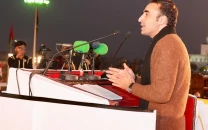

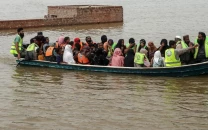


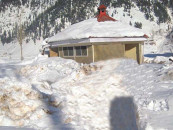

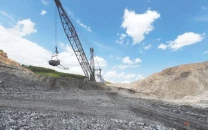

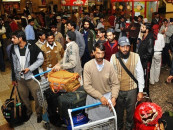








COMMENTS
Comments are moderated and generally will be posted if they are on-topic and not abusive.
For more information, please see our Comments FAQ